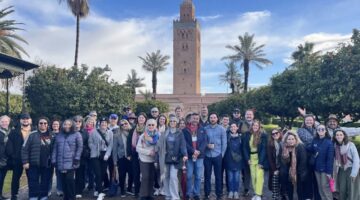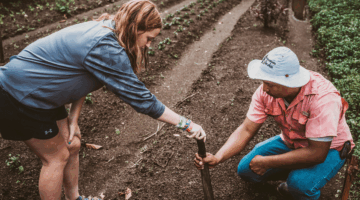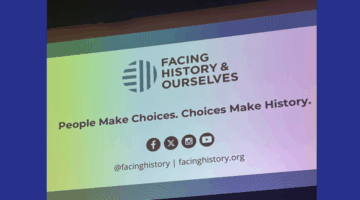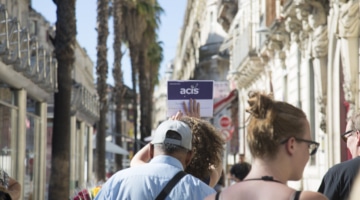Can Travel Change Your Life? 5 Ways Travel Can Broaden Student Horizons
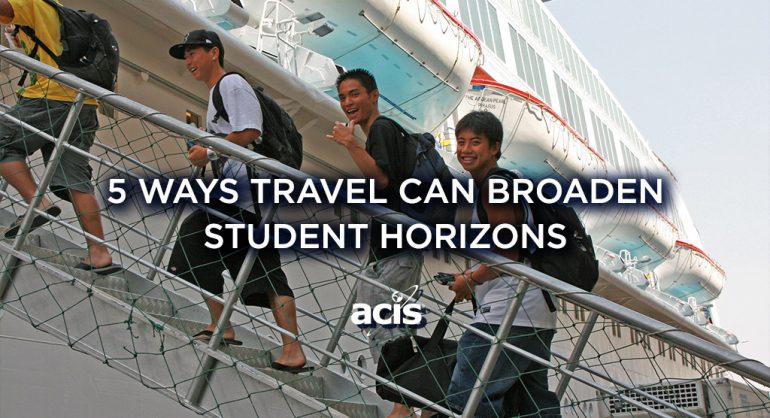
Leandra Beabout taught high school English before transitioning to a brief career in newspaper journalism. She now splits her time between teaching English as a new language in the virtual classroom and writing. She attended middle school in Slovakia, taught English in Uganda, and most recently returned from a trip to Croatia. She travels and writes as often as possible.
Today’s students grow up in a world far smaller than the globe of decades past. Italian landmarks are only an Instagram scroll away. BBC’s dazzling “Planet Earth” makes far-flung landscapes more accessible than ever. And the advent of virtual reality delivers the world to their fingertips — or so it feels.
So what does it mean when we can experience most destinations in two dimensions? Do real-life encounters make much difference?
Well, of course.
At its best, travel has made me a more creative and critical thinker. Curiouser. Even the nosedive moments, like stumbling into a six-hour detour in British Columbia or convulsing with food poisoning in Mexico City, have taught me something. Oftentimes I learn more about myself the farther I wander from home. Unfamiliar places do this to us — they shake us up, then hand us a mirror to reflect on whether the person the world sees is the person we feel like inside. And if I, an adult, feel my mind open after each trip, how much more is this true for students?
Here are a few ways I know travel broadens students’ horizons too:
Travel plants seeds for creativity.
A student doesn’t need to participate in drama, music, or art to be filled with creative energy. Experiencing new art in new places gives everyone’s imaginations a boost.
In 2009, The American Psychological Association published a study that linked “going abroad” with creativity. The study’s lead author, William Maddux, Ph.D., said, “Gaining experience in foreign cultures has long been a classic prescription for artists interested in stimulating their imaginations or honing their crafts.”
Seeing a new part of the world helps us see the rest of it with fresh eyes. Some students may find their muses among the stacks of ancient books in The Old Library at Trinity College in Dublin. Others? They’ll uncover their own line of poetry during a boat ride along the Seine or discover a new craft in Sarchí, a colorful artisan town in Costa Rica.
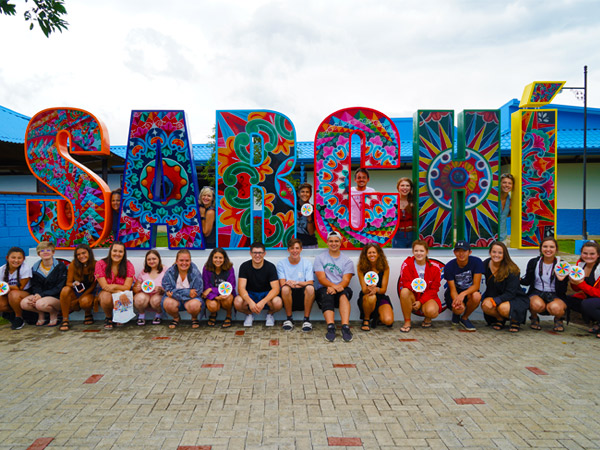
Travel inspires gratitude.
It’s impossible to forget your first big trip. Students, teachers, and chaperones alike will find themselves grateful for a million tiny things back home. Conveniences, mostly, but also family, friends, familiar faces we don’t take time to appreciate in the everyday blur of life.
Those who let travel crack open their curiosity will be filled with thankfulness for the opportunity to explore. Appreciation for the world — in all its beauty and frustrations — is a skill students can access for the rest of their lives.

Travel strengthens empathy.
With thousands of websites and books recording the details of a language, religion, or people group, information can seem cheap. Personal memories though? Invaluable. Technology has made the world smaller in many ways, but there is still no substitute for experience.
And what happens when students experience people outside their normal cultural bounds? Their horizons expand. Stretching students’ bubbles to include people different from them helps them imagine what it’s like to walk a mile in that other person’s shoes. Beautifully, this exposure and empathy can be carried back to the classroom. The character we build on the road is ours to take home.
Travel teaches us to let go of fear.
Because the U.S. is a large country, it is possible to spend an entire life here without stepping across a border. And with a 24-hour news cycle recording stories of violence both inside and outside the country, it’s easy to let fear take the lead. Encouraging students to travel teaches them we can let go of fear.
Aside from the grand act of traveling to unknown places, students can face fear head-on in a dozen tiny ways. Maybe they will try a new food. Attempt a new language. Navigate a culture clash. Some students overcome physical fears on adventure trips. Others tackle social fears by being present and assertive in uncomfortable situations. These small victories add up to help students become confident, capable adults.

Travel makes the world a classroom.
Is it possible to have a boring field trip? Students of all ages brighten at the opportunity to leave the classroom and learn in the “real world.” Travel adds life to the timelines and statistics students learn in textbooks. Language learning is suddenly practical. History lessons come alive in context. Oh, and students on tour in England can see the sort of house J.K Rowling imagined for the Dursleys in “Harry Potter and the Sorcerer’s Stone.”
Learning new information in the correct context helps students remember the material. It’s similar to project-based learning, which is also possible on some trips. Imagine the spark of interest when a teacher presents a lesson on the Great Wall of China if the student has just returned from traveling there. The student absorbed a lesson learned in real life — and now that student can enrich the rest of the class by sharing the experience with others.
Students’ first ventures abroad can feel risky for both the participants and their parents. There’s always a little danger in stepping across your threshold, whether heading down the road one mile or 1,000. But avoiding growth can be risky too. Travel has always been my most direct path to personal growth — whether by expanding knowledge or expanding my capacity for empathy or creativity. Whether you’re a student, teacher, parent, or chaperone: Travel challenges us, teaches us, rewards us. In the end, it makes us richer.
Looking for more ways that travel changes student lives?
Download our ebook full of statistics and stories from ACIS travelers!



